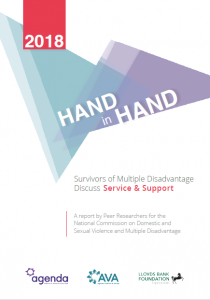The Secretary of State for the Home Department in the UK is tendering for the development of a written training pack to support frontline professionals working with people who may be victims or perpetrators of domestic abuse who are also experiencing alcohol misuse. The frontline professionals and practitioners that this training pack will support are those working in domestic abuse or alcohol treatment services, GPs and police. Levels of knowledge and experience of domestic abuse, alcohol misuse and the interplay between them is likely to vary between professionals in these groups, depending on the primary role and focus of the service in which they work.
The purpose of the training materials is to:
• raise awareness of the impact alcohol misuse can have in relationships where domestic abuse is present;
• encourage practitioners to actively seek to identify where alcohol misuse and domestic abuse are co-occurring and to give pointers on signs, risk assessment and responses covering both victims and perpetrators of domestic abuse; and
• encourage greater join-up between alcohol and domestic abuse services and engagement by GPs and police through the incorporation of these materials into training and practice.
The closing date is 12th February 2019.
To find out more click here.

